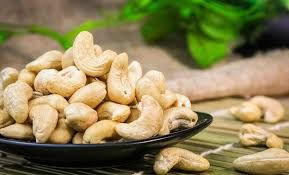- +1800-640-0788
- sales@dhkusa.com
5 Things You Must Know About The Cashew Nuts

1. The cashew has a very normal beginning. The humid evergreen tree bursts into blossom and each white and pink bloom starts to make a kidney-shaped seed, known as a drupe. Then it becomes peculiar. Because above every drupe grows a large, bulge fruit that turns from green to red. So, each tree appears to be having a great crop of apples, each with some attachment. When the crop matures and is harvested, it is only this hook on the bottom that is of interest to nut lovers.
2. But each stone fruit has first to be separated from its "apple", then freed from its solid, double shell. This cracking of cashew nut is normally done by female workers using bench splitters to free the grains one at a time after they are heat-treated to make the procedure easier. Then, each nut has to be peeled of its dark skin, again by hand. Only after this, the cashew emerges as a delicious food packed with quality fats, protein, vitamins, fiber, and an extraordinary array of minerals.
3. A handful of cashews (around 40g) consists of 70 percent of a grown person's daily suggested intake of copper which is important for generating red and white blood cells and enabling to make hemoglobin which takes oxygen around the body. Copper is also associated with the immune system and bone maintenance. That handful of cashew nuts also consists of around half an adult's daily requirement for phosphorous, which aids in building healthy bones and teeth as well as helping turn the food we eat into energy.
4. The 40g serving also brings around a third of the adult requirement for magnesium which assists with energy production and bone health. Then there are significant levels of zinc for producing new cells and wound healing; manganese which enables in activating the enzymes in the body; potassium which has an important function to play in the balance of fluids and maintaining the muscles of the heart; selenium which is vital to the immune system and iron and cell structure, crucial for making red blood cells.
5. Cashews are one of the protein sources. That handful of cashew nuts has 7g of protein, around 15% of an adult daily recommended intake. Moreover, it also has a varied range of B vitamins including B1, B5, and B6 which help to make, use, and store energy from the food we eat, and folate which helps the making of RBCs and is important for the development of babies in the womb. Also, they consist of the antioxidant Vitamin E and essential levels of Vitamin K, which is vital in blood clotting.

